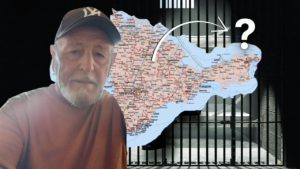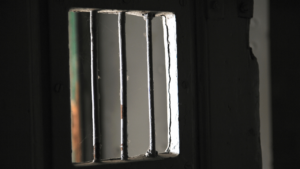Against the War? You Must Be Mentally Ill. Russia Intensifies Repressions within the Occupied Territories of Ukraine
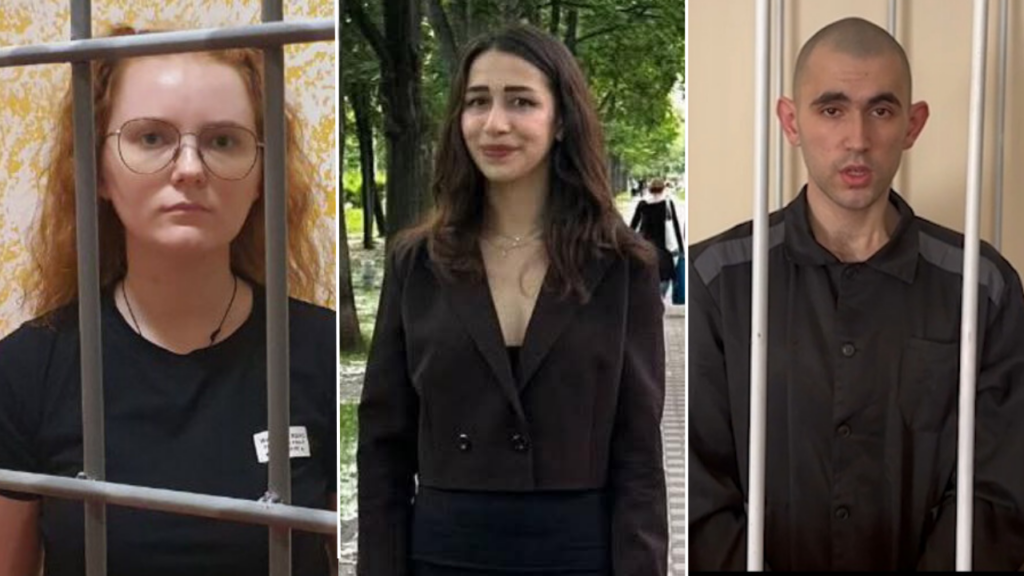
In the first half of July, occupation courts sentenced at least 23 Ukrainian civilians, including a father and daughter from the Kherson region, and a couple from Luhansk whose 21 year-old son is also held in Russian captivity.
47 year-old Oleksii Demianenko was sentenced to 14 years in prison, and his young daughter Anzhelika – to 10.5 years. The Russian Prosecutor General’s Office claimed that the father had gathered and passed information to his daughter about the movement and deployment of Russian troops and military equipment. Anzhelika, in turn, allegedly had passed this information to Ukrainian intelligence officers. Based on the content of official reports, it can be assumed that both were abducted no later than autumn 2023.
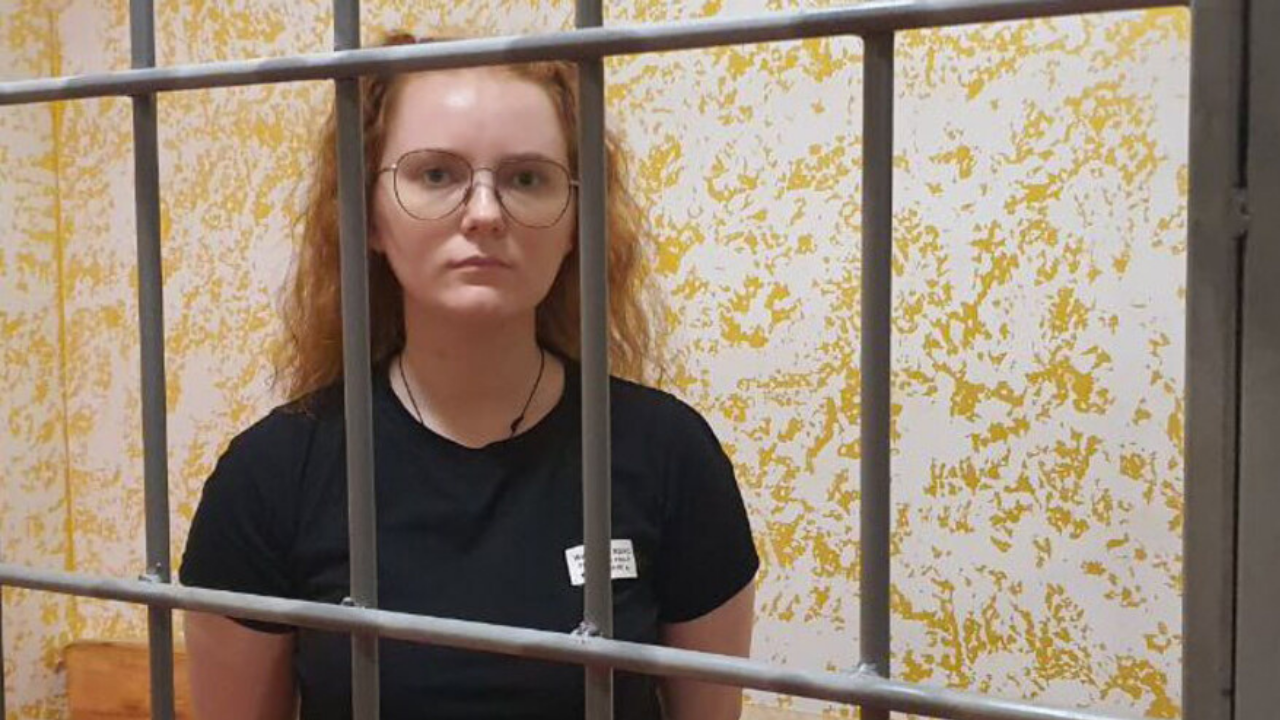
Anzhelika Demianenko
42 year-old Iryna Ryzhkova from Novoaidar, Luhansk Region, was sentenced to 16 years, and her 49 year-old husband Oleksandr – to 18 years. Like the Demianenkos, they were accused of gathering and passing information to Ukrainian special services about the deployment of Russian troops in their city. Iryna allegedly also relayed information through her husband about Russian military personnel in the hospital where she worked.
In Luhansk, 22 year-old Ruslan Levenets and 23 year-old Viktoriia Peshkova — said to be fellow students — were sentenced to between 13 and 15 years in prison. They allegedly “gathered information to undermine the security of the Russian Federation.” In Russia, 20 year-old Vladyslav Buhar from Zaporizhzhia Oblast was sentenced to nine years for allegedly transferring funds to the Armed Forces of Ukraine.
In Kherson Region, a young man was stripped of Russian citizenship and deported. His “crime” was reportedly attempting to contact Ukrainian intelligence services. The man allegedly of his own free will reported his intentions to Russian repressive authorities.
Several elderly people were also sentenced. Mediazona, an independent Russian outlet, reported on 60 year-old Pavlo Chibisov from Donetsk, who had lived in Russia since 2021. He was sentenced to 10 years in prison for allegedly preparing a terrorist attack involving murder.
In Berdiansk, a 61 year-old woman was fined RUB 10,000. She was punished for expressing “hatred” toward Russians and support for the Armed Forces of Ukraine at a hospital in the presence of two members of the medical staff. In other words, a healthcare worker reported their patient.
A 65 year-old man resident in Melitopol was sentenced to 14 years in prison for allegedly transferring funds to a bank account “used by Ukrainian intelligence services”. The amount in question was equivalent to RUB 5,000, which the man allegedly transferred over a nine-month period between 2023 and 2024.
“Repeatedly spread the slogan ‘Glory to Ukraine!’”
Of the 23 civilians sentenced in the first half of July, six were from Zaporizhzhia Oblast. In addition to Buhar, an unnamed 61 year-old woman, and unnamed 65 year-old man, they include two more residents of Melitopol and a man from the village of Orlianske in Vasylivka Raion.
The man from Orlianske was sentenced to nine years in prison for allegedly transferring money to the Azov Brigade.
One of the convicted residents of Melitopol, also unnamed, was fined for Telegram comments that allegedly “conveyed negative messages about representatives of the Russian nationality”.
The second is 28 year-old Mark Kaliush, who was abducted no later than October 2023. The young man, accused of preparing a terrorist attack, was ordered by an occupation court to undergo compulsory psychiatric treatment, Mediazona reported. Kaliush was allegedly connected to the Telegram channels “RIA-Melitopol” and “Melitopol is Ukraine” which, according to Russian investigators, were used to recruit saboteurs.
The media outlet notes that in addition to him, the occupying forces are also holding 19 year-old Yana Suvorova, Vladyslav Hershon, Heorhii Levchenko, Anastasiia Hlukhovska, and Iryna Levchenko, all of whom were also linked to those Telegram channels and the RIA Melitopol publication.
In occupied Kherson Region, in addition to Oleksii and Anzhelika Demianenko and the unnamed young man, 32 year-old Yevhen Sydorchuk was sentenced as well. He allegedly had gathered and transferred information to Ukrainian intelligence services. A resident of Kakhovka, Oleksandr Herchakovskyi, was sentenced to forced labor for the “repeated dissemination” of the slogan “Glory to Ukraine!” on social media sites.
In Donetsk, 32 year-old Liudmyla Striukova was sentenced to 13 years in prison, and an unnamed man was sentenced to 14 years. Striukova allegedly passed on information about the location of Russian troops in Volnovakha.
The exact nature of the “crime” committed by the man remains unclear. He was convicted of “state treason and public calls for extremism” though the sentence also mentions a confiscated phone and RUB 2,700, referred to as “compensation for funds he had transferred to a foreign state for activities aimed at undermining the security of Russia.”
In Rostov, 30 year-old Shamil Sharipov, a Russian serviceman holding dual Ukrainian and Russian citizenship and residing in Dagestan, was sentenced for allegedly passing information to the Armed Forces of Ukraine, Mediazona reported. According to the court ruling, Sharipov served in Donetsk Region.
Finally, there were two convictions against and two fines imposed on residents of occupied Crimea. 53 year-old Oleh Budnyk from Chornomorske Raion and an unnamed resident of Sevastopol were each sentenced to 17 years in prison for collecting and transferring information to Ukrainian intelligence about the location of Russian military equipment and units.
An unnamed young man from Simferopol was fined and sent for psychiatric evaluation for staging a one-man protest in the city center holding a sign that read “No to War”. Denys Mysnyk, a resident of Simferopol Raion, was also fined (though a smaller amount) for allegedly shouting insults at the President of Russia while intoxicated during a ride on public transport.
In the first half of July, Russians also sentenced 25 Ukrainian prisoners of war. Among them were three Azov Brigade members who had defended Mariupol: Artem Moroz, Oleksandr Shalin, and Dmytro Shanaiev. During the trial, it was noted that 35 year-old Shanaiev, who was sentenced to 20 years, suffers from hepatitis C and has heart problems, Mediazona reported.
The following Ukrainian POWs, captured in Kursk Oblast, were sentenced to 13 to 17 years in prison as “terrorists”: Serhii Baraniuk, Oleksandr Vysotskyi, Hryhorii Mikushev, Dmytro Verbytskyi, Maksym Starynets, Yurii Sinkevych, Serhii Pachkov, Oleksii Babenko, Maksym Zolotarenko, Bohdan Didok, Roman Zhmuidyn, Volodymyr Dmysh, Kostiantyn Brovchak, Volodymyr Popovych, Oleksandr Prokopenko, Serhii Smulko, Maksym Nazarenko, Serhii Kapshuk, Mykola Teslia, Andrii Milentiev, Yevhen Kalashnyk, and Volodymyr Horbatko.
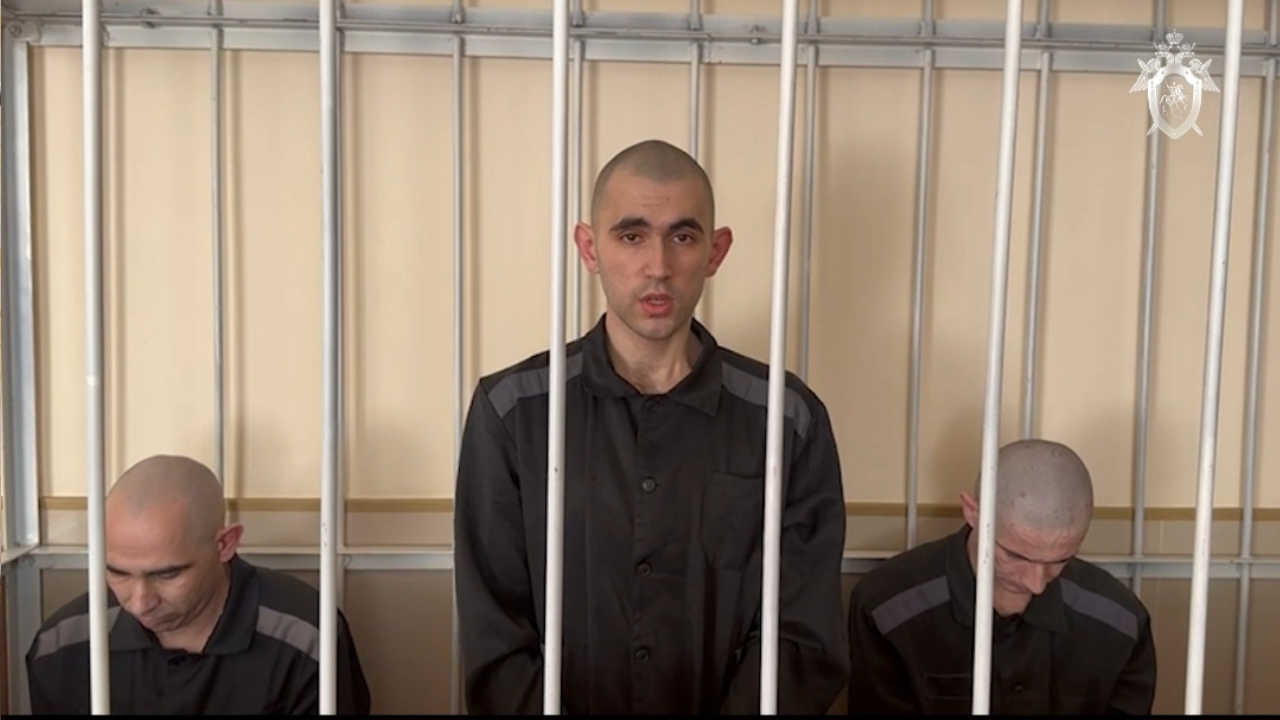
Roman Zhmuidyn, Bohdan Didok, and Maksym Zolotarenko
“He tortured his neighbors with loud music played by the Nazi band ‘Okean Elzy’”
There is information about 13 detained civilians residing in the occupied territories, though the actual number of arrests is likely significantly higher. Russian repressive authorities do not report all detentions. Moreover, at least some of the reports refer to arrests that took place weeks or even months earlier.
Some latest information about detentions is published by a notorious Crimean Telegram channel known for public denunciations, that is why most of the documented detention cases are those involving Crimean residents. However, in the first half of July, this channel also reported detentions in the occupied part of Kherson Region.
In addition, one case was reported in Kuban Region, where a woman, who said that she had come from Ukraine but no longer had a Ukrainian passport, argued with her neighbors, claimed that she hated Russia, and asked to be deported. She was allegedly detained and was indeed supposed to be deported.
Of the five known detentions in Crimea, two are related to the alleged preparation of terrorist attacks, and two to social media posts. One case involves 24 year-old Khatidzhe Buiukchan, who went missing in May while traveling from Staryi Krym to the capital of the occupied Autonomous Republic of Crimea. In mid-July, the FSB announced her arrest. The young woman was allegedly planning a terrorist attack against a Russian soldier on instructions from the Security Service of Ukraine.
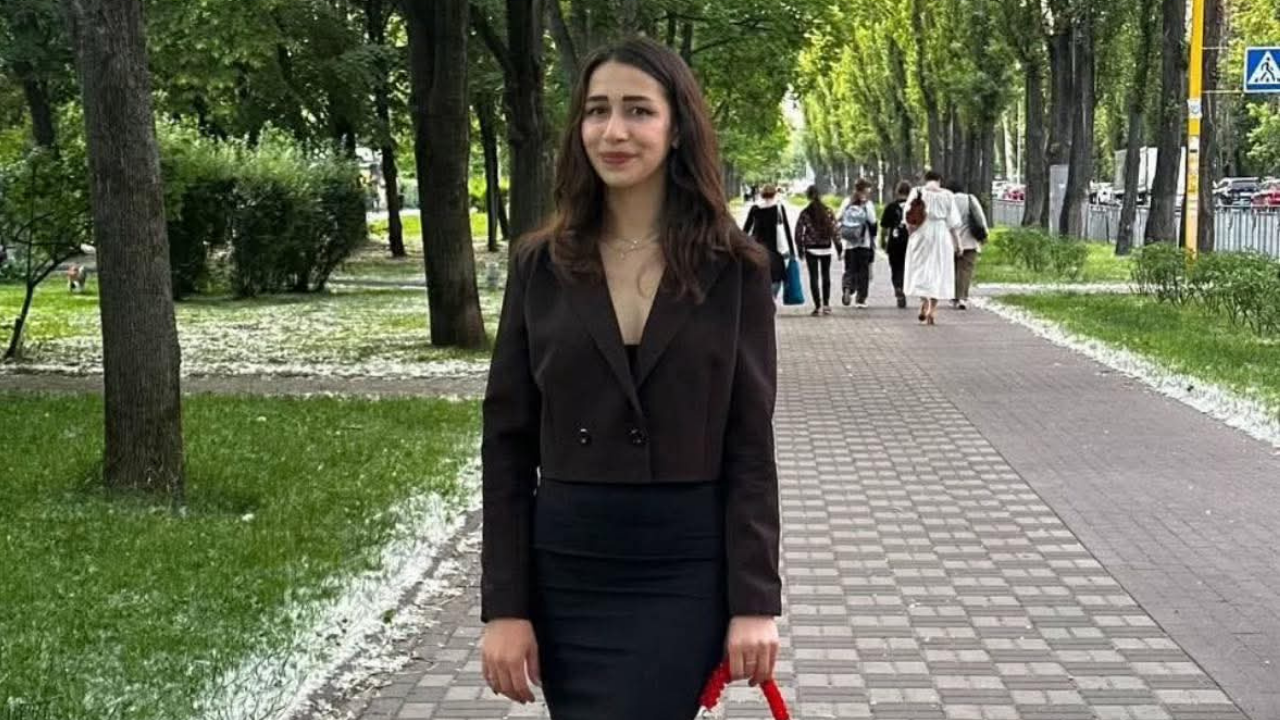
Khatidzhe Buiukchan. Photo: Facebook page of the ZMINA Human Rights Center
The second “terrorist” is an unnamed 44 year-old resident of Yalta who allegedly prepared an explosive-laden drone to target a gathering of Russian police officers during Russia Day celebrations on June 12.
Another detained Crimean, also a Yalta resident, allegedly justified a drone attack on the Kremlin on social media sites, but he is also suspected of planning a terrorist attack on the peninsula. A 41 year-old resident of Simferopol was reportedly detained for his Telegram post calling for violence against Russians.
Finally, there is a case involving a resident of the city of Saky, whose neighbors complained about him blasting Okean Elzy music at night. The man, however, was not even fined – he escaped with a “preventive conversation”.
Two women from the occupied part of Kherson Region were also detained for their social media comments. It is likely that both cases involve old posts from a time when either Facebook or at least VPN access was still available within the occupied territories.
One of the women, Alona Sirenko from Skadovsk, is suspected of calling for rallies in support of the Armed Forces of Ukraine in occupied Hola Prystan and of “bringing discredit” upon the Russian army. “Discrediting” is also mentioned in the report about the second woman detained for her posts – Olena Hnatovska from Kakhovka.
There are also reports about the detention of five residents from the occupied part of Zaporizhzhia Oblast — three from Melitopol, one from the village of Mala Bilozerka in Vasylivka Raion, and one from Enerhodar.
Two unnamed men from Melitopol allegedly passed information about Russian troop and equipment locations to Ukrainian intelligence. It was stated that the two are Ukrainian citizens. This likely means that they were arrested last year, before acquiring Russian citizenship became the only option to continue living within the occupied territory.
The other three Zaporizhzhia Region residents are suspected of transferring funds to accounts used by “Ukrainian intelligence services and the Armed Forces of Ukraine.” It is unclear whether the FSB sees their activities as connected, but all three arrests were reported in a single statement.
This article was published with the support from the European Endowment for Democracy (EED). Its content does not necessarily reflect the official position of the EED. The views or opinions expressed herein are the sole responsibility of the author(s).




